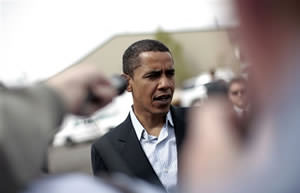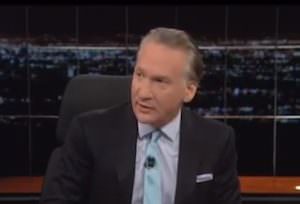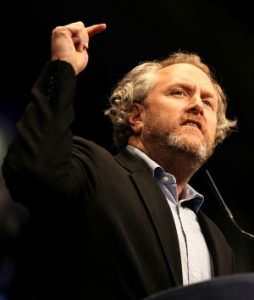Citizen Journalism: In With the New
Spurred on by a historic presidential election, an increasing number of "civilians" are engaged in journalism on the Web, and they are changing journalism for the better.
In the world of conventional journalists — my old world — the idea of a non-journalist, a “civilian,” doing our work is an outrage.
No matter that one of the best editors I know says writing a good straight news story is nothing more than a “parlor trick.” No matter that one of the best young reporters of my acquaintance learned to write news stories not in journalism school but by copying and rewriting stories from The New York Times and other papers.
In our minds, journalism is a high-church mixture of complex rules, codes, practices, skills, traditions and taboos. If not exactly a religion in our minds, we certainly consider it a “calling,” open only to those who receive and accept the mysterious call.
But with the rise of the Internet, no call is necessary. Spurred on by a historic presidential election, an increasing number of people are engaged in journalism on the Web. They are changing journalism for the better. Their impact will be felt in not only national politics but in something often more important: the coverage of city councils, mayors, neighborhoods, schools, crime, health care, poverty and other important aspects of life in America’s cities and towns.
Some are amateurs, as in the case of contributors to OffTheBus, a presidential campaign site sponsored by The Huffington Post and NewAssignment.net. Truthdig, on the other hand, is produced largely by pros. The diversification of the media is a welcome development, especially in the coverage of the presidential campaign. Political journalism has become rooted in the obvious. It’s boring and mind-numbingly conventional.
When I was a young political writer for the Associated Press, then a bastion of conventional journalism, I used to escape its restrictions by writing part time for a small liberal magazine in Los Angeles called Frontier. It was against AP rules, but I correctly figured my bosses would never read the magazine.
The late Phil Kerby, the Frontier editor who later won a Pulitzer Prize as an editorial writer for the Los Angeles Times, urged me to stick it to those crooked lobbyists and legislators. These lectures were followed by his cautionary advice to be correct and careful. Kerby was a colleague of the late Carey McWilliams, a great historian and editor of The Nation. When Frontier folded, The Nation took it over. From working for Kerby and from reading and knowing McWilliams, I learned to deal with ideas, to develop my opinions and to back them up with solid reporting and direct, straight-ahead writing.
A much less positive experience occurred at the Los Angeles Times when I was covering the 1976 presidential campaign.
The industrial belt was turning into the rust belt, and I reported on what was obviously the decline of American heavy industry. I’d arrive in a city knowing nobody and then would dig out my story. I loved the work, and the stories were played on Page 1. But a friendly editor told me I was making a big mistake, that my colleagues were getting more notice in the office by riding the campaign bus. I switched to covering Jimmy Carter’s presidential campaign and spent the fall in the campaign cocoon. After election day, I quit political writing and returned to Los Angeles as a general assignment reporter for the Times. My family was a big reason for abandoning something I had done full time for many years. But another reason was that I no longer respected the work. I didn’t think riding the bus was real reporting.
I made it to columnist and then city editor, jobs I had always wanted, and retired from the Times. When I began blogging for LA Observed, a site featuring local news and comment, and writing about politics for Truthdig, I saw their potential and compared it to what Carey McWilliams and Phil Kerby accomplished outside journalism’s mainstream with their gutsy and well-reported publications. I sometimes think of McWilliams and Kerby when trying to live up to the freedom I have been given on the Internet.
As I immersed myself in the Internet, OffTheBus, an effort to harness the energy and intelligence of interested amateurs in covering the campaign, attracted my attention. Such amateurs are called “citizen journalists.” As a traditionalist, I was skeptical and was reminded of an old anti-Ronald Reagan speech, given when he was an actor-citizen politician running for governor, that included a line that went something like: “Hi. I’m your citizen pilot. I’ve never flown a plane before, but I have always had a deep interest in aviation.”
But the editorial director of OffTheBus is my friend and USC faculty colleague, Marc Cooper, a Nation contributing editor and definitely a Carey McWilliams-Phil Kerby kind of journalist. Having stepped off the bus myself years ago, the name of the project intrigued me.
OffTheBus was started by Jay Rosen, an NYU journalism professor and Internet communications pioneer, and Arianna Huffington, founder of the Web’s Huffington Post. She was interested in a project for the ’08 campaign. He wanted to mobilize large numbers of “people who are not professional reporters.” They would devote much of their attention to finding out what was happening on the ground and what concerned voters.
Directing the project is Amanda Michel, an Internet organizing veteran of the Howard Dean presidential campaign, the first such successful political effort on the Web. She also worked John Kerry’s campaign later that year and with Harvard’s Berkman Center for Internet and Society. Michel, editorial director Cooper and managing editor John Tomasic compose the project’s paid staff. Everyone else is a volunteer.
“We rely on the wisdom of the mass [the volunteers],” Cooper told me. “But it is mediated and edited by professionals. We get the best of both worlds.”
The most notable OffTheBus contribution to the campaign came from citizen journalist Mayhill Fowler. She is an unpublished fiction and nonfiction writer and a Sen. Barack Obama supporter who, according to the Federal Elections Commission, has given the senator $2,000.
She volunteered for OffTheBus when she heard of it. Fowler first wrote about grass-roots Obama campaigning within driving range of her home on the Oakland-Berkeley border. Soon, with two grown daughters away at Princeton and a lawyer-husband at home, she took off on the campaign trail, following the Obama bus in a rented car. She has a great eye and a unique style.
After returning to the Bay Area from her travels, she was alerted to an Obama fundraiser in San Francisco’s rich Pacific Heights neighborhood. She called two Obama supporters she knew for permission to attend, which was granted. “They knew I was a reporter,” she told me.
She heard Obama say something that has caused him trouble ever since she reported it: “You go into some of these small towns in Pennsylvania, and like a lot of small towns in the Midwest, the jobs have been gone now for 25 years and nothing’s replaced them. And they fell through the Clinton administration, and the Bush administration, and each successive administration has said that somehow these communities are gonna regenerate and they have not. And it’s not surprising then they get bitter, they cling to guns or religion or antipathy to people who aren’t like them or anti-immigrant sentiment or anti-trade sentiment as a way to explain their frustrations.”
Traditionalists in the press thought Fowler had somehow broken some of the craft’s rules. One deals with what is off the record. This rule is so loose and confusing that I have never been able to completely understand it. The traditional press wasn’t invited to the fundraiser, meaning it was closed to the press but apparently not off the record. (I have never heard of this variation of the rule). Nobody stopped Fowler from taking and recording notes. Nor did anyone stop other attendees who brought video and audio recorders.
The second rule deals with contributing to campaigns. Traditionalists say Fowler should not write about Obama because she is one of his contributors. I don’t agree with that. I’m not one of those journalists who brag about never voting. I never miss an election. What’s the difference between, on the one hand, voting, and defending my choices at dinner parties, and, on the other, contributing? When I covered the conservative movement and Ronald Reagan, I made it a point to tell my right-wing sources that I was a liberal Democrat. I wanted to be honest. They accepted that, and some sources became drinking companions. After Reagan was elected governor, an aide offered me a job as a press secretary. I said no, I was just starting to get ahead in my job at the Associated Press. “Anyway, ” I added, “you know I don’t agree with a thing he believes in.” The aide dismissed the point, saying Reagan liked me and thought I was a straight shooter.
Individual journalism, such as Fowler’s, is just part of the OffTheBus report. Its most significant contribution is assembling groups of citizen journalists for special projects. Project director Michel, experienced in political organization, puts these projects together.
Early in the campaign, she assigned volunteers to accompany Obama canvassers on a national canvassing day. As a matter of fact, she said, some of the OffTheBus volunteers were also Obama canvassers. They asked the same questions and turned in the answers on forms that Michel tabulated.
The OffTheBus crew found that contrary to what most journalists were reporting, the economy rather than the war was the biggest concern.
How could Michel trust the Obama volunteers as reporters? All the reports had the same findings, she said, whether they came from plain reporters or Obama canvasser reporters.
Another project was an in-depth look at the backgrounds of the superdelegates. The information is available on the OffTheBus Web site.
I read OffTheBus every day and see it as a work in progress, breaking new ground and old rules, and producing analyses that can be as tired as anything in the traditional media. But in general, OffTheBus offers a fresh and imaginative look at the campaign. “We are learning as we are going,” said editorial director Cooper. “We are trying to make up the rules as we go along. We really don’t have a guide. … We found in our early work that it is not so easy to get people to do good journalism. We don’t want to downplay or discard the old skills.”
The model of a professional staff reading and fact-checking the work of amateurs is something that newspapers, with their increasingly small staffs and growing inability to connect with readers, should consider. When I was city editor of the Times, we had a hard time figuring out how to cover our huge area. I think something like this would have helped.
Most of all, it’s imaginative. It dares to challenge old ways. The presidential campaign is historic for a few reasons, not the least of which is the opening up of that mysterious “calling,” journalism.
Your support matters…Independent journalism is under threat and overshadowed by heavily funded mainstream media.
You can help level the playing field. Become a member.
Your tax-deductible contribution keeps us digging beneath the headlines to give you thought-provoking, investigative reporting and analysis that unearths what's really happening- without compromise.
Give today to support our courageous, independent journalists.




You need to be a supporter to comment.
There are currently no responses to this article.
Be the first to respond.